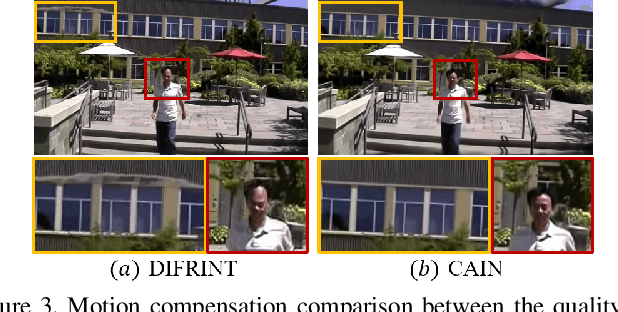Learning Deep Video Stabilization without Optical Flow
Paper and Code
Nov 19, 2020



Learning the necessary high-level reasoning for video stabilization without the help of optical flow has proved to be one of the most challenging tasks in the field of computer vision. In this work, we present an iterative frame interpolation strategy to generate a novel dataset that is diverse enough to formulate video stabilization as a supervised learning problem unassisted by optical flow. A major benefit of treating video stabilization as a pure RGB based generative task over the conventional optical flow assisted approaches is the preservation of content and resolution, which is usually obstructed in the latter approaches. To do so, we provide a new video stabilization dataset and train an efficient network that can produce competitive stabilization results in a fraction of the time taken to do the same with the recent iterative frame interpolation schema. Our method provides qualitatively and quantitatively better results than those generated through state-of-the-art video stabilization methods. To the best of our knowledge, this is the only work that demonstrates the importance of perspective in formulating video stabilization as a deep learning problem instead of replacing it with an inter-frame motion measure
 Add to Chrome
Add to Chrome Add to Firefox
Add to Firefox Add to Edge
Add to Edge